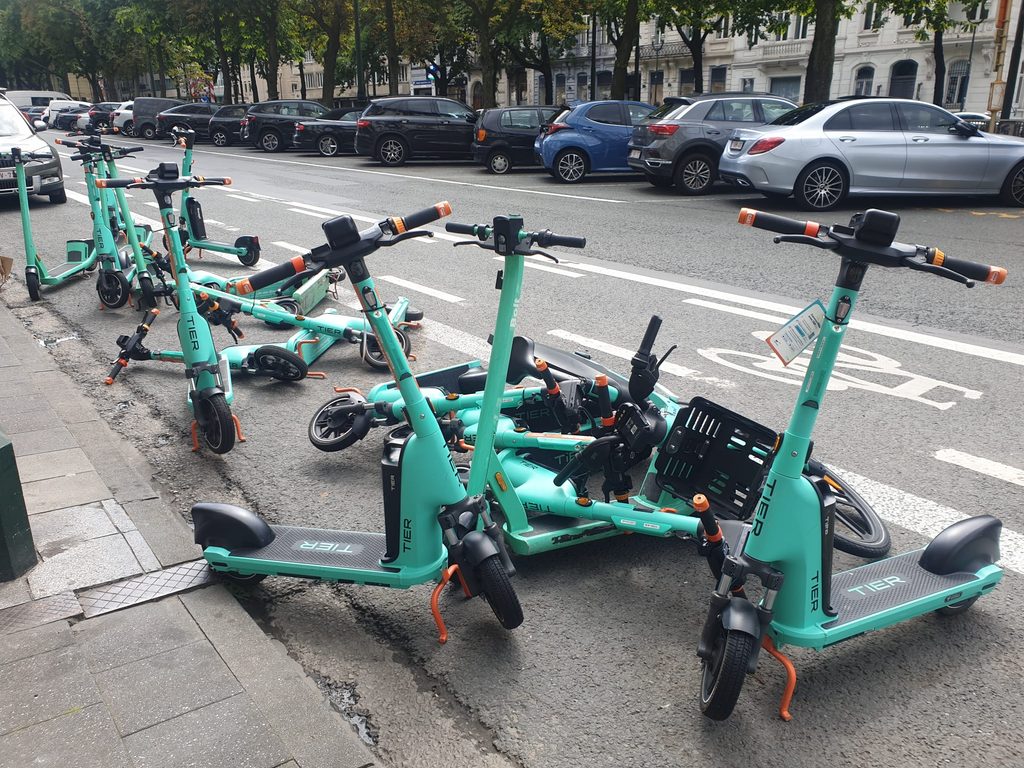The Brussels municipality of Etterbeek is creating demarcated drop-off zones for shared electric scooters and bicycles from next week – ahead of the regional authorities' decision to require these zones throughout the Capital Region from next year.
Until now, badly parked e-scooters in Etterbeek were taken away and stored in a municipal depot, where companies such as Lime and Dott had to collect them. But from 6 November, that will change.
"The situation was becoming too dangerous," Mayor Vincent De Wolf told La Capitale. "Shared vehicles have their place in our municipality, but only with respect for the highway code."
"Users who do not leave their shared scooter correctly in a zone provided for that purpose will not be able to finish their ride and will therefore continue to pay as long as the scooter is not in a drop zone," stated Etterbeek's mobility city councillor Caroline Joway.
From 1 January 2024, these drop zones will become mandatory in every Brussels municipality in any case, but like the municipalities of Saint-Gilles, Woluwe-Saint-Pierre, Koekelberg, Berchem-Sainte-Agathe, Jette, the City of Brussels and Schaerbeek, Etterbeek is now anticipating the regional regulations.
"That way we can still solve any problems before New Year," Joway said, adding that the municipality wanted to make the changes as soon as possible.
Related News
- Electric scooter operators shift focus to recycling after Paris ban
- 'Testing phase': Brussels monitors efficiency of e-scooter drop-off zones
- Brussels tightens restrictions on all shared mobility in the region
In total, Etterbeek demarcated 53 drop zones to make sure that there is one in every neighbourhood, every 250 to 300 metres. "Some of these are set up on the road, others on the pavement. We took the opportunity to make pedestrian crossings safer by removing illegal parking spaces."
The drop zones were created in consultation with local residents, stressed De Wolf. "We looked for a solution that as many people as possible could agree with."

